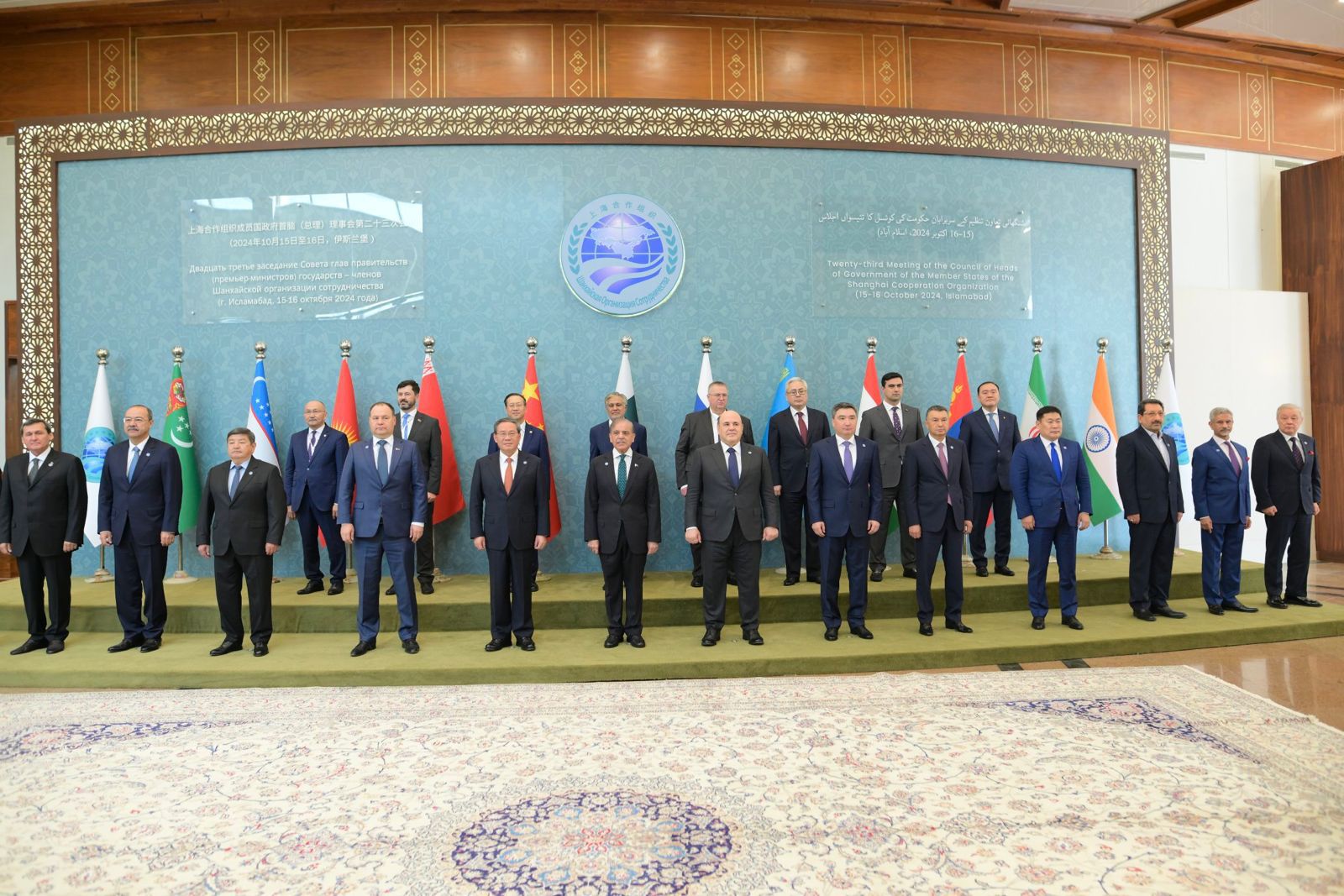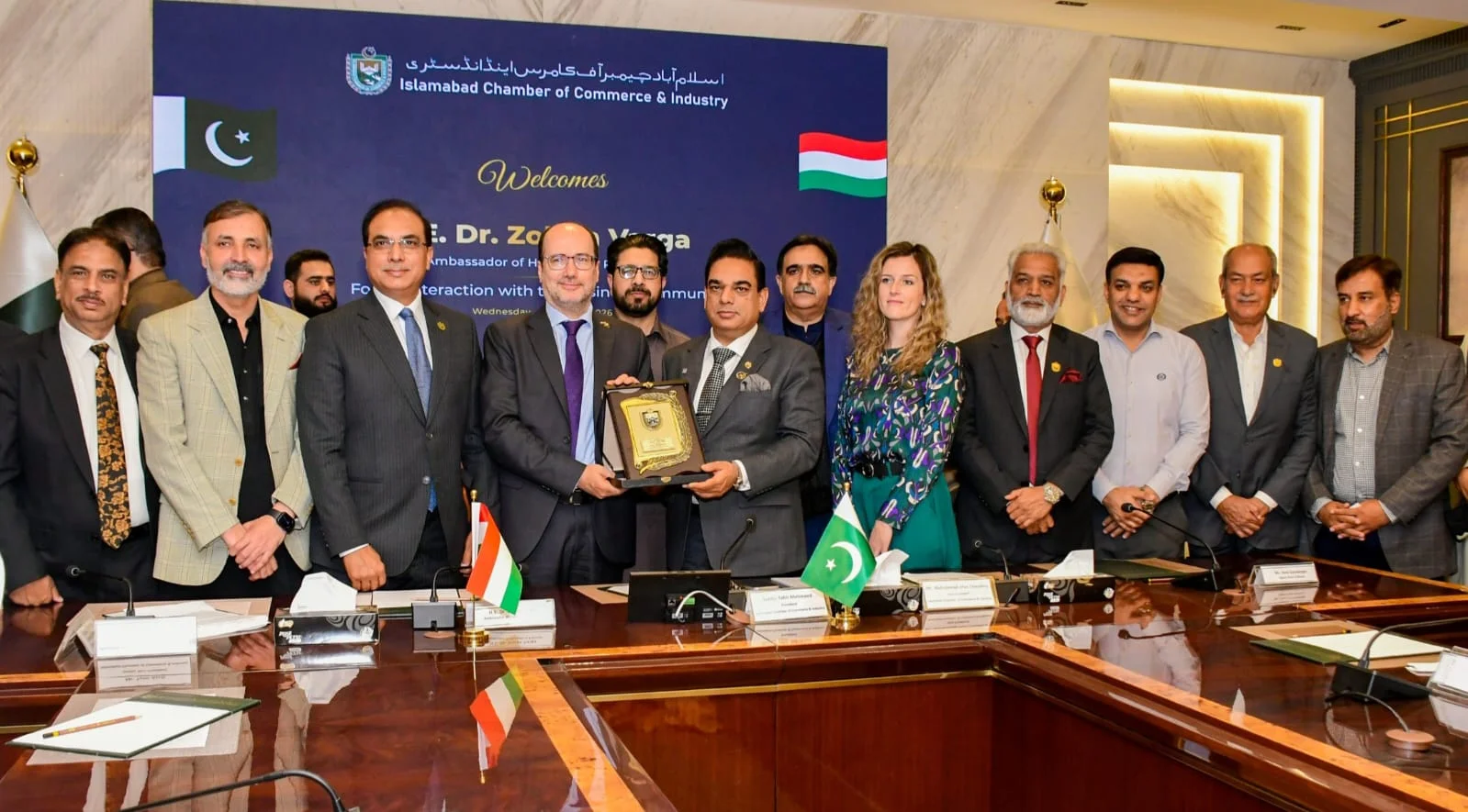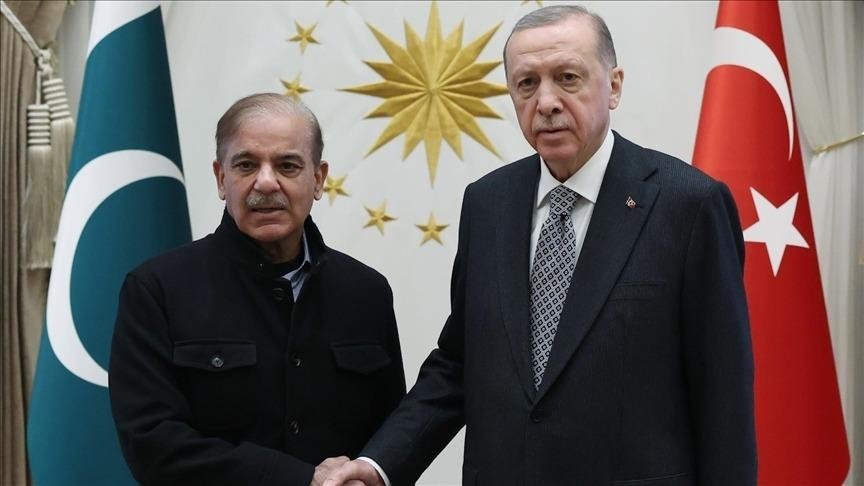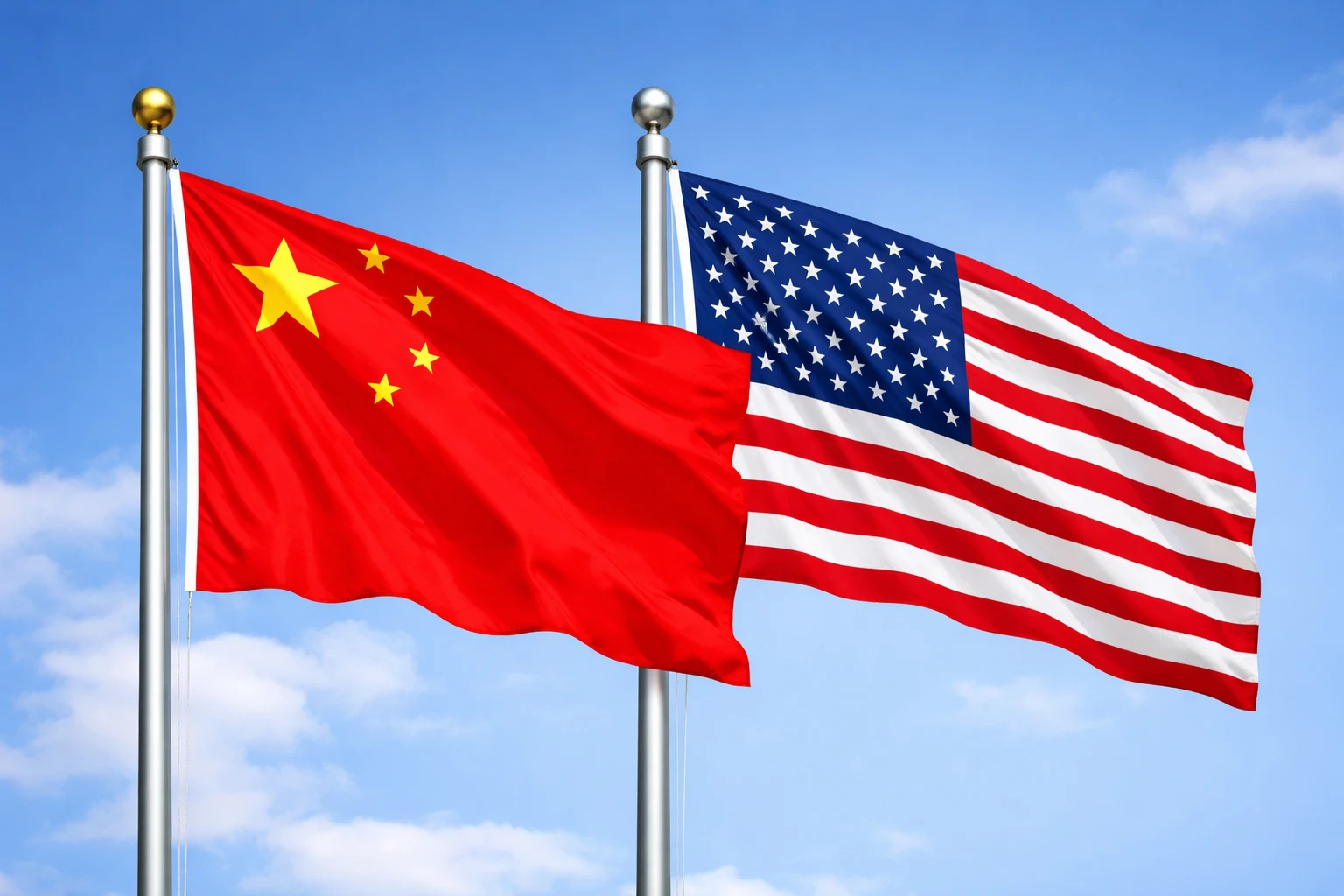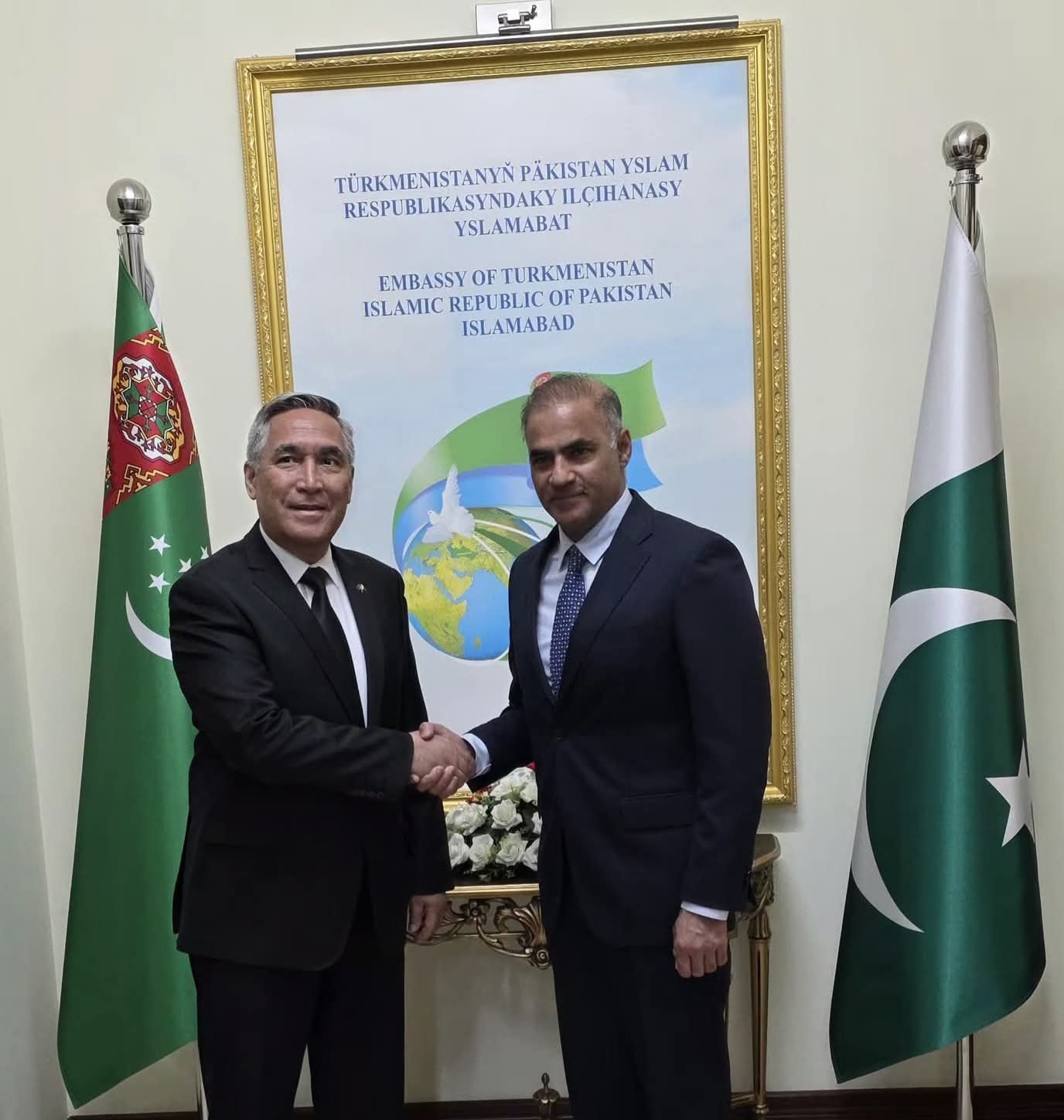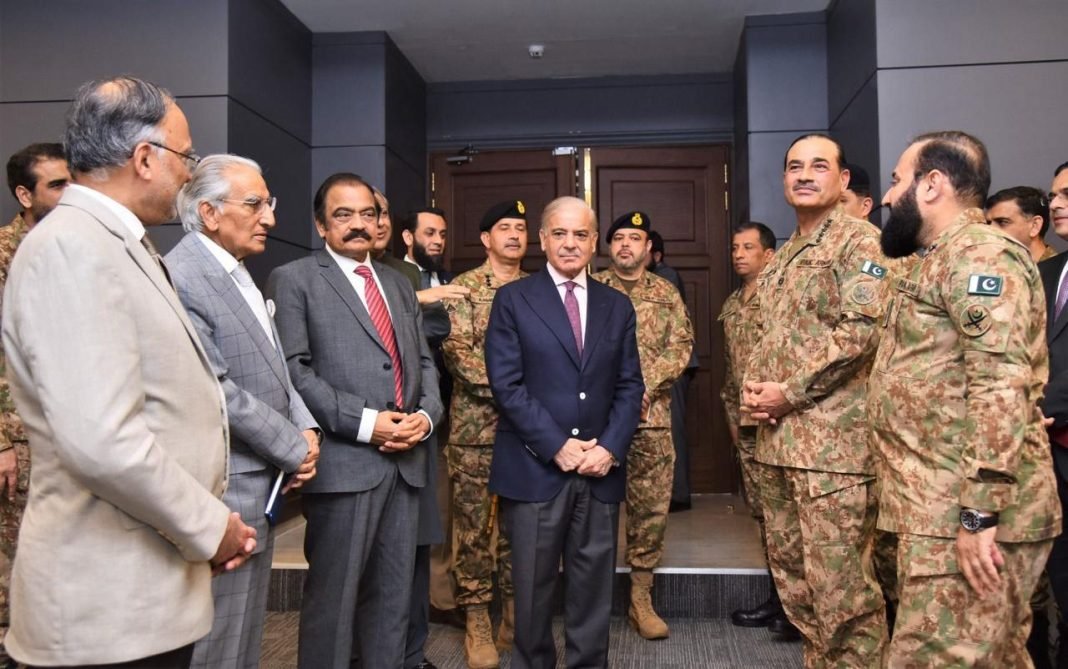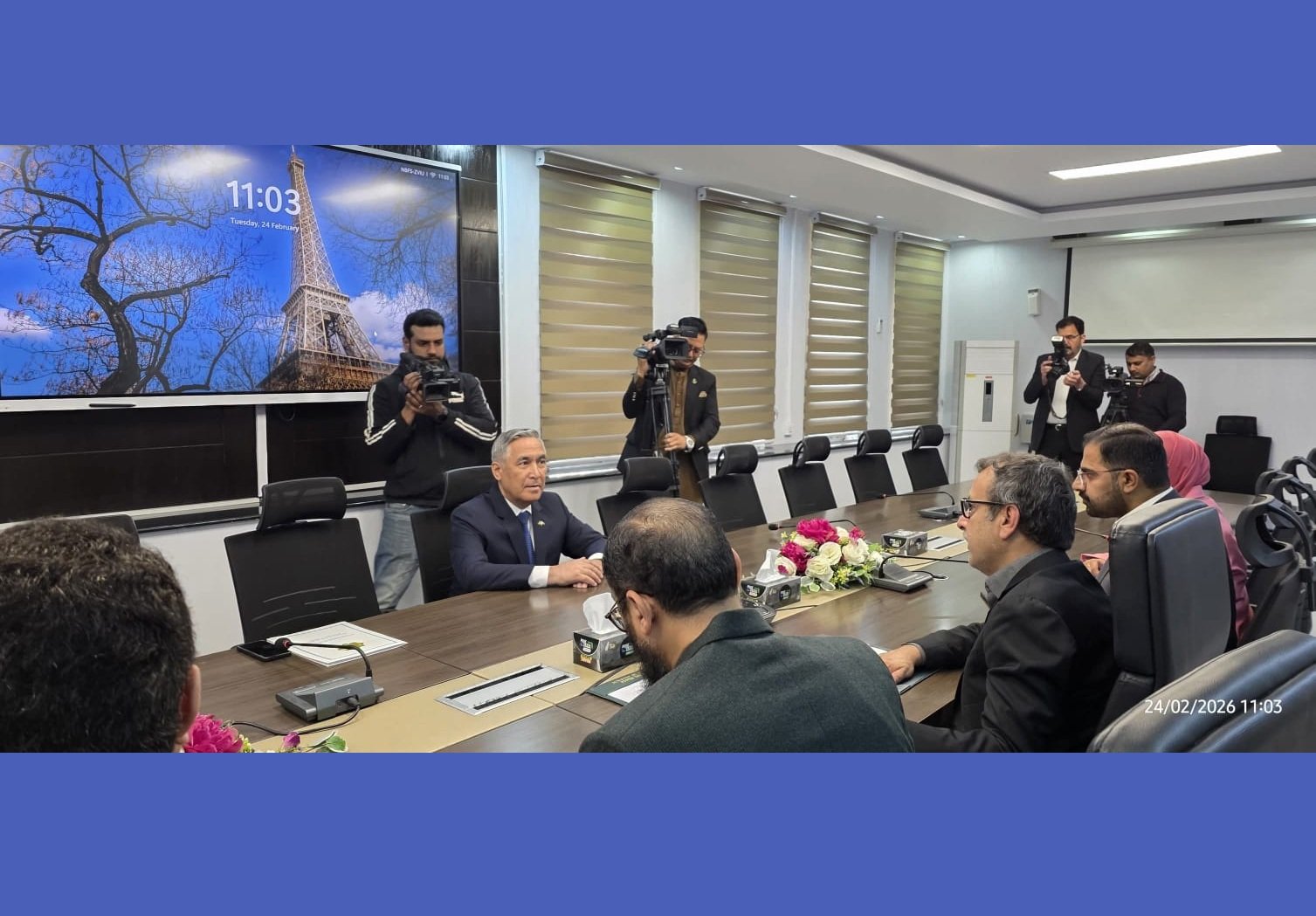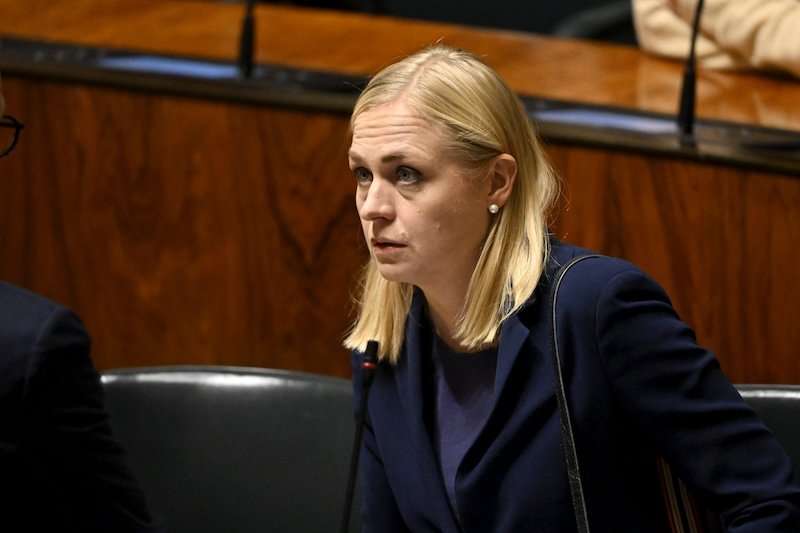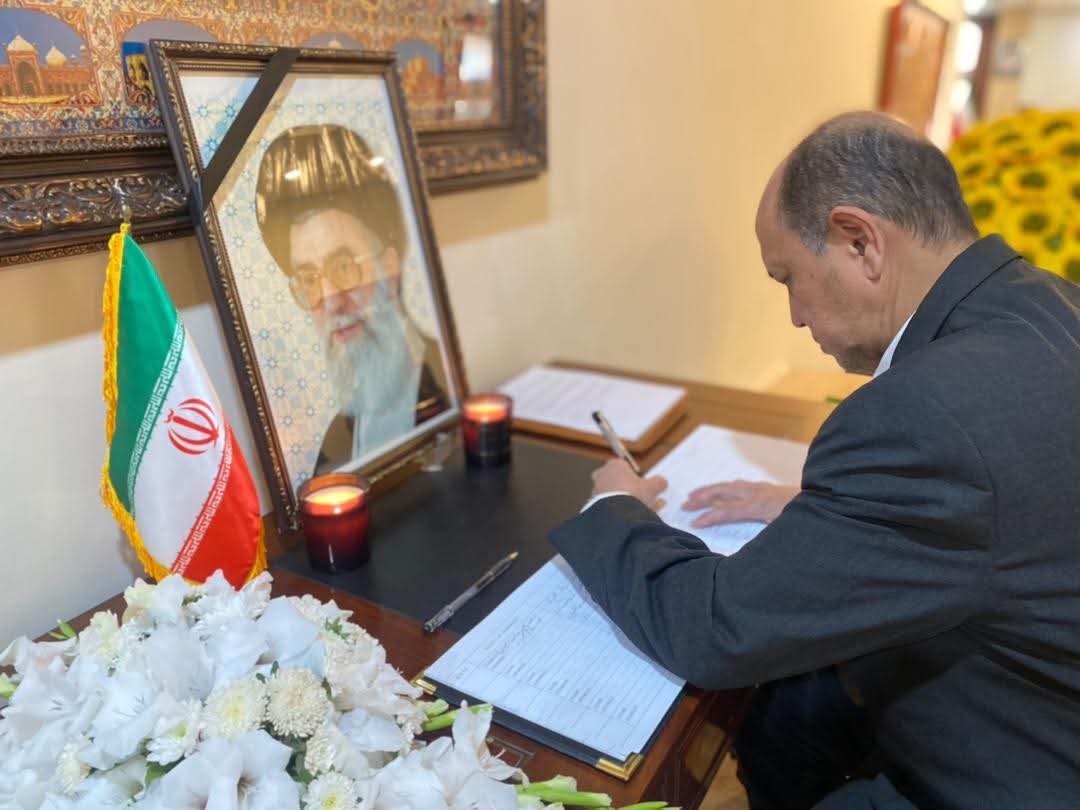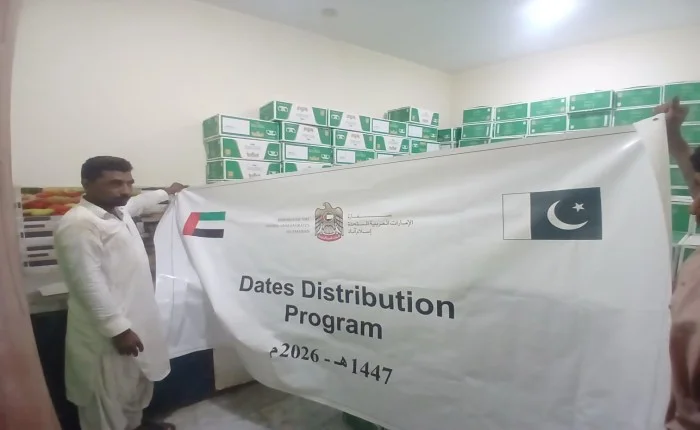The Shanghai Cooperation Organization (SCO), established on June 15, 2001, has become a vital platform for enhancing regional collaboration. Originating from the “Shanghai Five” in 1996, the organization initially aimed to promote security, counter radicalization, and prevent terrorism, particularly in the Central Asian region following the Soviet Union’s dissolution. Over time, the SCO evolved into a broader cooperation forum, where economic, political, and security cooperation among member states became its primary focus. Pakistan, since gaining full membership in 2017, has played a pivotal role in advancing the objectives of the organization and has been a proactive participant in fostering regional connectivity, peace, and prosperity.
On 15-16 October 2024, Pakistan successfully hosted the SCO (CHG) meeting, cementing its position as a key player in the region and earning widespread praise for its organizational efforts. Held in Islamabad, this summit saw Prime Minister Shehbaz Sharif take center stage, chairing the 23rd meeting of the SCO’s Council of Heads of Governments at the Jinnah Convention Center. The summit underscored Pakistan’s role in increasing and its capacity to facilitate crucial dialogues among the region’s top leaders, including those from China, Russia, Kazakhstan, and Uzbekistan. Prime Minister Shehbaz Sharif delivered an impassioned speech, addressing critical issues facing the SCO region. His discourse ranged from enhancing trade and connectivity to bolstering energy infrastructure, counter-terrorism initiatives, military cooperation, and even the idea of creating independent financial institutions for the SCO, such as shared currencies and banking systems.
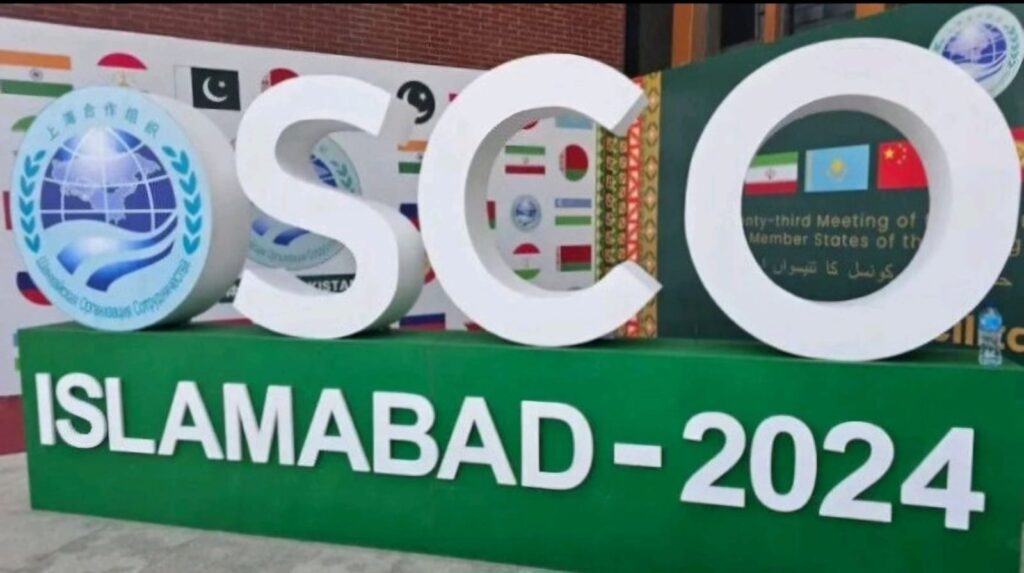
The successful organization of the SCO (CHG) meeting by Pakistan demonstrated the country’s growing role in facilitating multilateral discussions aimed at solving pressing issues in the region. During the summit, member states reaffirmed their commitment to respecting sovereignty, territorial integrity, and the principles of non-interference in the internal affairs of other countries. Key developments and discussions during the summit revolved around the organization’s role in promoting sustainable development goals (SDGs), enhancing economic cooperation, and addressing security threats. It also showcased the significance of SCO’s ongoing efforts to build trans-regional connectivity, particularly through projects like CPEC, which not only link Central Asia and China with South Asia but also expand economic opportunities for SCO member states.
Another key aspect of the meeting was the growing recognition of Pakistan’s hospitality and organizational skills. The event was widely praised by international and regional leaders, who lauded Pakistan for its smooth coordination and the warm welcome extended to delegates from across the region. Pakistan’s successful hosting of the SCO (CHG) meeting reinforced its image as a responsible global actor capable of bringing together diverse nations to address common challenges. Moreover, it helped Pakistan gain greater visibility on the world stage, enhancing its diplomatic clout in multilateral forums.
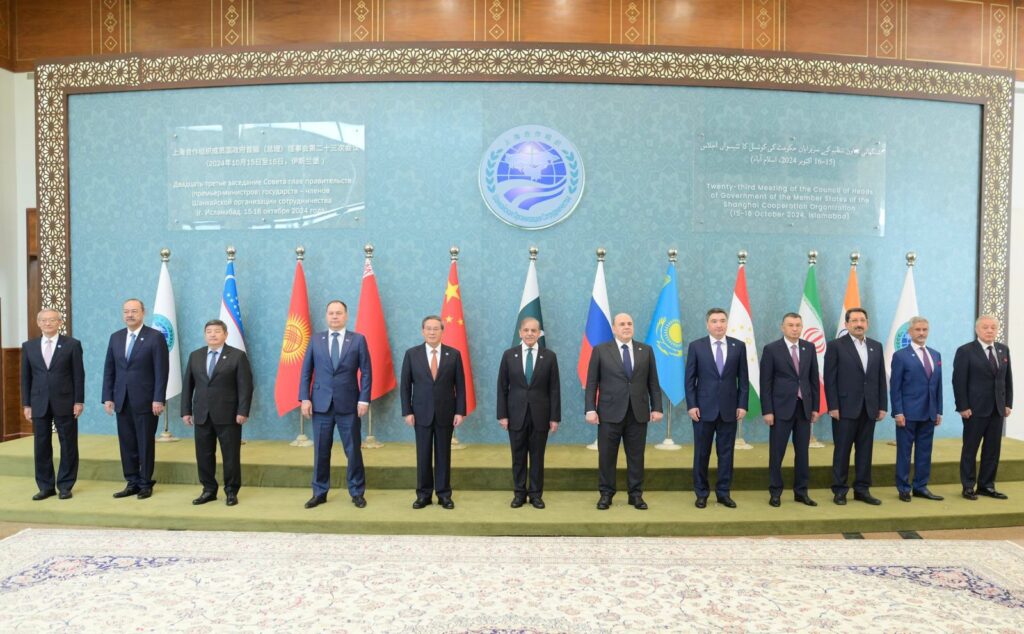

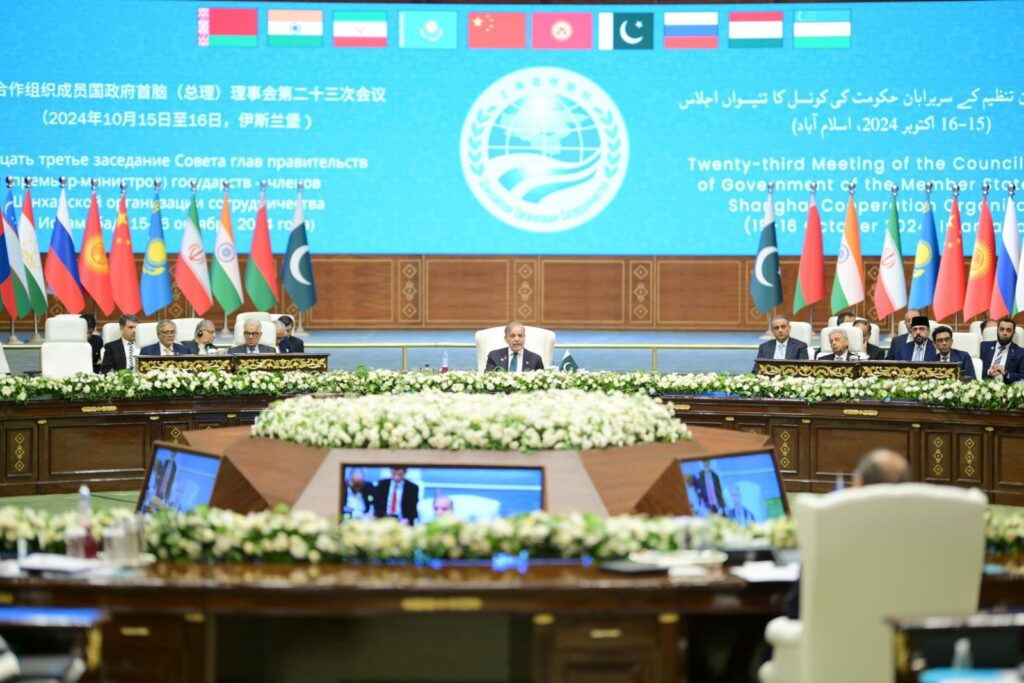
Key Highlights of the 23rd SCO (CHG) Meeting
- Respect for Sovereignty and Multilateral Cooperation
A central theme of the meeting was the emphasis on mutual respect for sovereignty, territorial integrity, and non-interference in the internal affairs of states. The joint communique reaffirmed the commitment of the member states to respect the rights of nations to independently choose their political, social, and economic paths. This respect for sovereignty is seen as a foundation for building stronger international relations based on mutual benefit, non-use of force, and peaceful resolution of disputes.
- World Unity for Peace, Harmony, and Development
The SCO leaders reiterated their collective commitment to the proposal for adopting a resolution by the United Nations General Assembly, known as the “World Unity for a Just Peace, Harmony, and Development” initiative. This underlines the SCO’s dedication to promoting new forms of international relations rooted in mutual respect and justice, with a vision of creating a “community with a shared future for mankind.” The participants also aligned their efforts with the global call for “One Earth, One Family, One Future,” emphasizing unity in the face of global challenges.
- Economic Cooperation and Sustainable Development
The heads of delegations emphasized the need for deepening cooperation in key areas such as trade, investment, technology, and green development. They highlighted the importance of advancing sustainable and inclusive growth within the SCO region by leveraging the potential of the digital economy, e-commerce, finance, and banking systems. The adoption of the SCO Economic Development Strategy for 2030 and the Program of Multilateral Trade and Economic Cooperation was seen as crucial for achieving long-term prosperity. It provided a platform for discussing the establishment of a “New Economic Dialogue” and exploring innovative ways to address global economic disruptions.
- Digital and Technological Innovation
The meeting focused on the need to bridge the “digital divide” and harness the potential of cross-border data exchange. The SCO member states adopted the Concept for the Development of Digital Public Infrastructure to promote digital inclusion and innovation. The heads of delegations noted the importance of e-government, electronic payment systems, and e-commerce as key components for the future development of SCO member states.
- Energy Cooperation and Environmental Sustainability
The meeting also featured discussions on the future of energy cooperation. The SCO members reaffirmed their commitment to developing cross-border energy infrastructure and enhancing energy security through practical cooperation among energy producers, transit countries, and consumers.
- Strengthening Financial Cooperation
The heads of delegations discussed the establishment of financial mechanisms, such as the SCO Development Bank and the SCO Development Fund, to support project activities in the region. The discussions also included the potential creation of an SCO Investment Fund to stimulate economic growth and promote financial innovation. Additionally, the summit focused on reducing the reliance on foreign currencies by gradually increasing the use of national currencies in mutual settlements, further strengthening the region’s financial autonomy.
- Cultural and Humanitarian Cooperation
Cultural and humanitarian ties were another focal point at the summit, with leaders acknowledging the importance of fostering people-to-people connectivity, educational exchanges, and cultural partnerships. The development of small and medium-sized enterprises (SMEs) was seen as a critical driver for reducing unemployment and ensuring sustainable growth across the region.
Future Prospects of the SCO
The potential for regional connectivity within the SCO is immense. As Pakistan gears up for the beginning of the second phase of CPEC it stands playing a pivotal role in fostering regional cooperation, particularly through SCO’s various initiatives, from economic partnerships to cultural exchanges. The potential for Pakistan to showcase its strengths and take a lead in resolving key legal and logistical issues within the SCO framework, especially concerning peace in Afghanistan, is immense.
- Pakistan’s Role in SCO Connectivity and the Completion of CPEC
CPEC has been a cornerstone of Pakistan’s integration into regional infrastructure and development projects. CPEC has positioned Pakistan as a main transit hub between Central Asia, South Asia, and China. Once fully operational, CPEC will offer a vital land link for double-landlocked SCO member states, such as Uzbekistan and Tajikistan, providing them with direct access to the Arabian Sea through Gwadar and Karachi ports. Pakistan has the potential to drive long-term peace efforts in Afghanistan. Stability in Afghanistan is essential not only for regional security but also for the smooth operation of CPEC, making Pakistan’s involvement crucial.
- Cultural and Educational Initiatives
Beyond economics and trade, SCO has the potential to become a hub for cultural connectivity. Pakistan, with its rich history intertwined with Central Asia, is well-placed to spearhead cultural initiatives. Historical links, such as the spread of Islam from Central Asia to the subcontinent, and the Mughal Empire’s origins in the region, provide a deep cultural affinity between Pakistan and SCO member states like Uzbekistan, Kyrgyzstan, and Kazakhstan. Through the SCO, Pakistan can initiate cultural exchanges, co-productions in cinema, joint exhibitions, and people-to-people contacts that celebrate this shared heritage. Moreover, SCO members could collaborate on educational exchanges, with Pakistan establishing joint universities or research institutes with member states.
- Currency Exchange Agreements and Trade Facilitation
One of the significant steps towards economic integration within the SCO is the implementation of currency exchange agreements. Pakistan and China have already signed such an agreement, which allows the direct exchange of their currencies. This model can be expanded across the SCO, with Pakistan playing an instrumental role in advocating for a region-wide currency agreement. Such agreements could mitigate foreign exchange risks and simplify trade transactions, boosting economic cooperation among member states.
Moreover, the SCO countries currently lack a unified visa regime. Pakistan, along with other members, propose a could simplified visa process or a single-visa regime for SCO countries. This would not only boost trade and business exchanges but also promote tourism and cultural cooperation. With many SCO countries relying on complex transit agreements for cross-border trade, simplifying visa processes would also ease the movement of goods and services, facilitating smoother trade routes across the region.
- Addressing the Transit Challenges for Landlocked SCO Members
A key challenge within the SCO is the presence of double-landlocked states like Uzbekistan and Tajikistan, which have no direct access to the sea. Pakistan’s Gwadar and Karachi ports provide these countries with critical access to global markets via the Indian Ocean. Developing better infrastructure links and transit corridors, such as the Trans-Afghan Railway, will be essential in linking these landlocked nations to CPEC and other regional infrastructure projects. SCO should prioritize establishing mechanisms that facilitate smoother access for these countries to regional trade routes. This could involve standardized customs regimes, transit agreements, and regional rail and road links that ensure efficient and seamless transportation. Pakistan, with its growing infrastructure under CPEC, could act as the gateway for SCO’s landlocked members, offering them access to its ports and integrated transportation networks.
- Expanding People-to-People Connectivity and Educational Exchanges
The development of human capital within SCO member states is another area ripe for collaboration. Talks of establishing SCO-branded universities and vocational training centers in partner countries would be a significant step in strengthening educational ties. As CPEC enters its second phase, Pakistan will need to develop a skilled workforce capable of supporting the new industries and services that will emerge from enhanced connectivity.
- The Role of Gwadar International Airport
The inauguration of the new Gwadar International Airport is a milestone for regional connectivity. The airport will serve as a critical link, not only for Pakistan but for the entire SCO region, by providing easy access to Central Asian markets and beyond. It will facilitate the movement of goods, services, and people, making Gwadar a hub for trade and investment in the region. The strategic location of Gwadar, combined with its modern infrastructure, positions it as a vital port for SCO members seeking access to global markets.
Pakistan’s leadership in the SCO provided an opportunity to showcase its commitment to international cooperation on pressing issues like environmental sustainability, economic policies, and counter-terrorism. Pakistan highlighted its capacity to lead regional efforts and contribute to global peace and development. The successful hosting of the 23rd SCO (CHG) meeting further bolstered Pakistan’s global reputation, demonstrating its ability to lead important multilateral discussions and facilitate regional cooperation.

Executive Director, Pakistan Research Center for a Community with Shared Future (PRCCSF).
